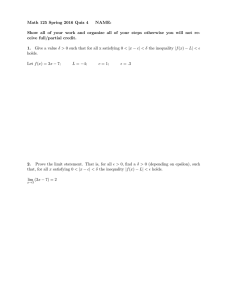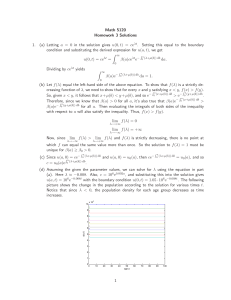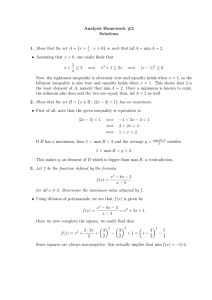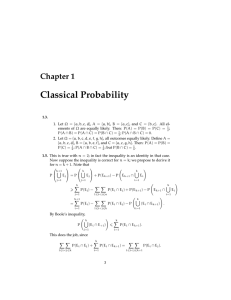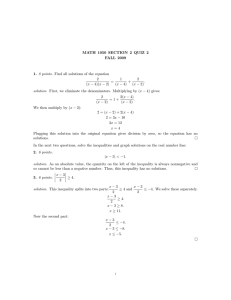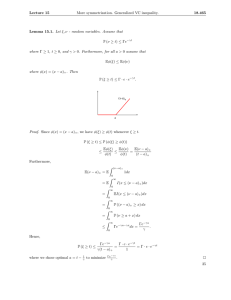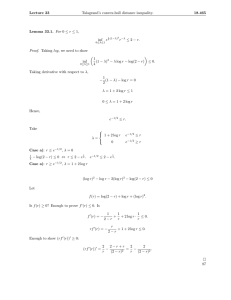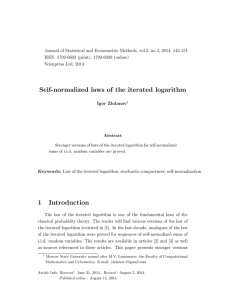Document 13570300
advertisement
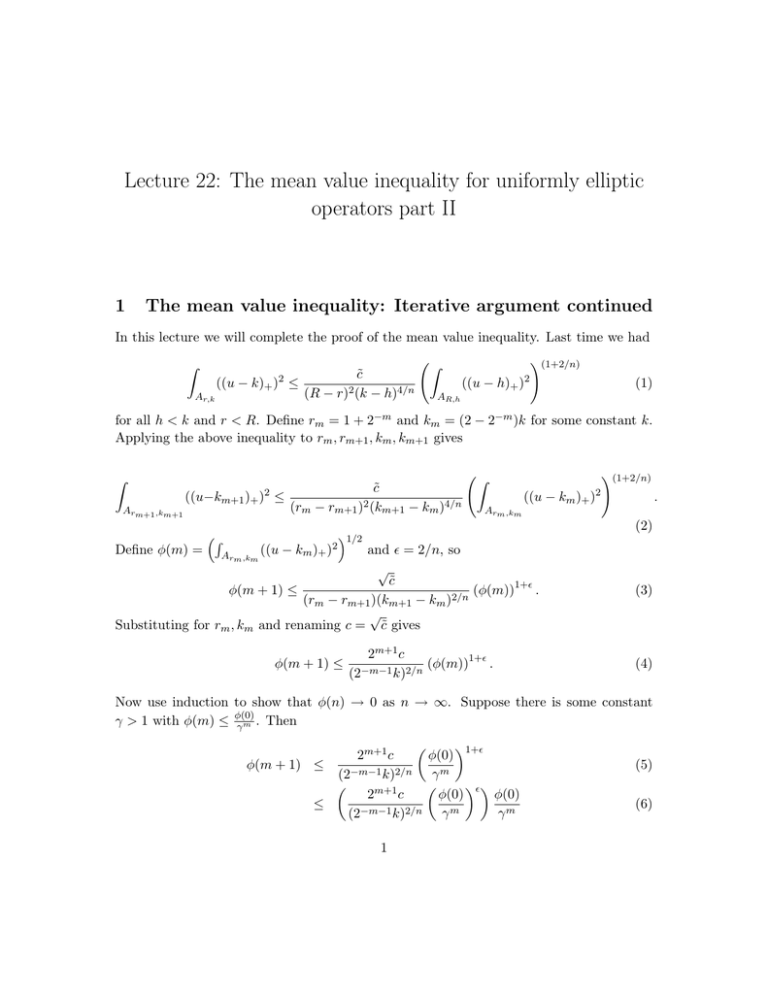
Lecture 22: The mean value inequality for uniformly elliptic operators part II 1 The mean value inequality: Iterative argument continued In this lecture we will complete the proof of the mean value inequality. Last time we had � c̃ ((u − k)+ )2 ≤ 2 (R − r) (k − h)4/n Ar,k �� �(1+2/n) ((u − h)+ )2 (1) AR,h for all h < k and r < R. Define rm = 1 + 2−m and km = (2 − 2−m )k for some constant k. Applying the above inequality to rm , rm+1 , km , km+1 gives � c̃ ((u−km+1 )+ ) ≤ 4/n 2 (k − r ) (r m m+1 m+1 − km ) Arm+1 ,km+1 2 �(1+2/n) �� 2 ((u − km )+ ) . Arm ,km (2) Define φ(m) = �� Arm ,km ((u − km )+ )2 �1/2 and � = 2/n, so √ c̃ φ(m + 1) ≤ (φ(m))1+� . (rm − rm+1 )(km+1 − km )2/n √ Substituting for rm , km and renaming c = c̃ gives φ(m + 1) ≤ 2m+1 c (φ(m))1+� . 2/n −m−1 (2 k) (3) (4) Now use induction to show that φ(n) → 0 as n → ∞. Suppose there is some constant γ > 1 with φ(m) ≤ φ(0) γ m . Then � � 2m+1 c φ(0) 1+� φ(m + 1) ≤ (2−m−1 k)2/n γ m �� � � 2m+1 c φ(0) � φ(0) ≤ γm (2−m−1 k)2/n γ m 1 (5) (6) so if � 2m+1 c (2−m−1 k)2/n � φ(0) γm �� � 1 γ ≤ then we get φ(n) ≤ φ(0) γ n for all n. It suffices to pick γ > 2 2k � φ(0)for appropriate k � . Therefore (7) 1+� � φ(0) = 0, n→∞ γ n lim φ(n) ≤ lim n→∞ so � 1 and k > (21+� cγ(φ(0))� ) � = (8) ((u − km )+ )2 → 0 as n → ∞. (9) Arm ,km Note that lim rm = 1, and lim km = 2k so we get � ((u − 2k)+ )2 = 0 (10) A1,2k and conclude that u ≤ 2k on B1 . Putting in our value for k we obtain 1 sup u ≤ (21+� c) � φ(0), (11) B1 (x0 ) and, writing out φ(0) and �, sup u ≤ k � �1/2 �� 2 (u+ ) (12) A2,0 B1 (x0 ) ≤ k � �1/2 �� u B2 (x0 ) This is the mean value inequality. 2 2 . (13)
